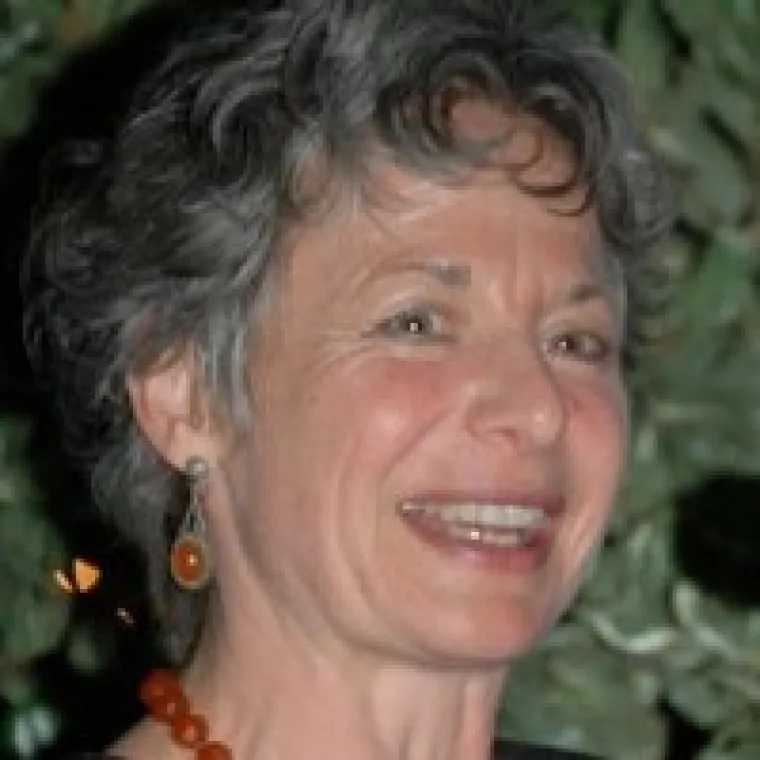WHERE HEALTH & HUMANITIES COLLIDE

Jayne Reines, a recent Franke Honors graduate, presented her thesis work at a medical conference in Ohio this last semester.
Ever wondered what a healthcare provider's role is, beyond the physical?
Jayne Reines, a graduate of the W.A. Franke Honors College, explores this beyond—how physicians interact with patients spiritually. Reines recently earned her degree in Applied Humanities with an emphasis in Public Health and a minor in Health and Human Values. During the spring 2023 semester, Reines had the opportunity to present her Honors Thesis, titled What is the Role of the Physician in Religious Spaces at the End of Life?, at a medical conference in Ohio.

Reines presented at the Conference of Medicine & Religion, mentioning the efforts from the W.A. Franke Honors College to bridge the gap between health and the humanities through the HHV minor.
Throughout her thesis research, Reines's advisor was Hester Oberman, Ph.D., a prominent interdisciplinary lecturer at the University of Arizona who teaches in the Department of Religious Studies and Classics and the W.A. Franke Honors College. Her research focuses on medical and critical health humanities, specifically the intersection between transcendent experiences, mental health, and observable scientific data. Oberman's courses examine the impact of medical, psychological, and technological advances throughout the history of medicine and on bioethics; doctor-patient relationships and communication; reproductive rights, abortion, and end-of-life decisions.
“Within the pre-med landscape and healthcare field, we have a tendency to think things can't be ‘cutting-edge’ if they aren't strictly STEM, but the work presented at the conference resulting from the intersection of Medicine and the Humanities was truly groundbreaking,” reflected Reines, who aspires to become a primary care physician and is interested in working in rural or underserved communities. She received early admittance into the College of Medicine - Tucson as a part of the Honors Early Assurance Program (HEAP), where she will begin attending next fall.
In the Franke Honors College, Dr. Oberman teaches several classes, including HNRS 395M: Medicine, Spirituality, & Healing: The Rise and Limits of the Biomedical Scientific Program. HNRS 395M is offered to students as early as their first year in honors and is one of the required courses for the Franke Honors thematic minor, Health and Human Values (HHV). While the course fulfills a minor requirement, any student interested in the overlap of health and the humanities may take it. Any student thinking about applying for HHV in fall 2023 is encouraged to take 395M this fall. Luckily, there are still spaces available!
Courses offered in the Health and Human Values minor at the W.A. Franke Honors College challenge pre-health students to evaluate current healthcare systems and consider the complexity of the concept of health, beyond the purely scientific.
“My experience as a student in this minor has guided me toward pursuing a career in medicine and continually pushes me to consider the relationship between healthcare, humanity, and society,” Reines said.
Currently, HHV is the fastest growing interdisciplinary program at the W.A. Franke Honors College. Start your HHV exploration today by signing up for HNRS 395M below!
HNRS 395M-001: Medicine, Spirituality, & Healing: The Rise and Limits of the Biomedical Scientific Program

Instructor: Hester Oberman
Tues/Thurs | 12:30 PM - 1:45 PM | S SCI 308
As an interdisciplinary health humanities course, H395 will examine the evolving role from Shamans to healthcare practitioners, historically shifting concepts of the body and disease, and the fraught question of religion, race, and gender in medicine today. We will end by taking stock of Western medicine and exploring the tensions between medicalization and forces of demedicalization in its future. The seminar-style course will include a student-tailored project exploring personal or professional-oriented goals to meaningful integrate scientific knowledge with the human experience.

